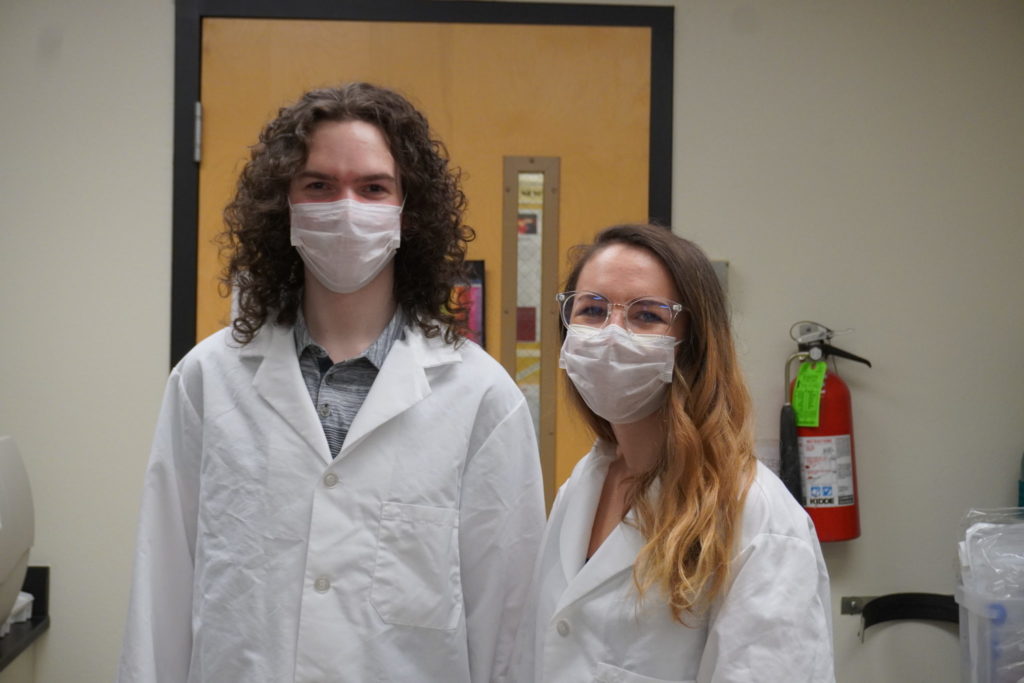
Sarah Ardanuy Johnson, assistant professor and director of the Functional Foods & Human Health Laboratory in the Colorado State University Department of Food Science and Human Nutrition, is providing important experience working on research projects to two undergraduate students. Brayden Smith, a junior, and Lauren Grabos, a senior, are both majoring in nutrition and food science. They are studying the health impacts that consumption of berries such as blueberries and aronia berries and microgreens have on human health.
Opportunity for undergraduates
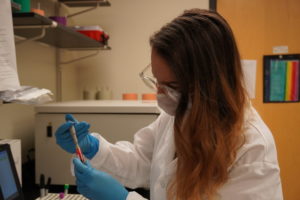
Grabos has been studying in Johnson’s lab for three years, and Smith has been working in the lab for two years. Johnson sees supervising student volunteers and employing undergraduates as an opportunity to educate and train undergraduate students while also being helpful to both her research and for her graduate students.
“I realized that undergraduate students could facilitate our laboratory in advancing our research and helping with day-to-day tasks, while also providing my graduate students with opportunities to teach and serve as peer mentors,” said Johnson.
Johnson says that having an opportunity to conduct research while completing an undergraduate degree can help spark ideas for a possible career and help students achieve their goals.
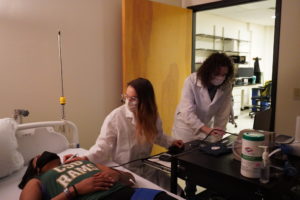
“Much of my professional service has been dedicated to promoting research and evidence-based practice to students and clinical practitioners such as registered dietitian nutritionists,” said Johnson. “It occurred to me early on at CSU that engaging undergraduate students would promote an early understanding of research and potentially transform the education and careers of students.”
After spending months researching functional foods, the students working in Johnson’s lab were able to present their research in the online Celebrate Undergraduate Research and Creativity research showcase. They were two of three students in the department who presented research posters. Brayden Smith received Highest Honors for his poster and presentation.
Student research
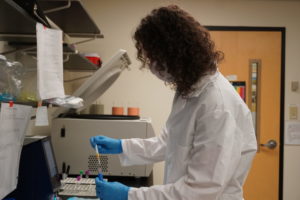
Smith’s research is focused on assisting with clinical research studies and biological sample processing. He is currently assisting with stool sample processing in preparation for future gut microbiota analysis connected with the Microgreens and Human Health study that the lab completed last fall. His research found that there was a high rate of adherence to daily microgreen consumption and preliminary data suggest there were minimal adverse gastrointestinal symptoms associated with microgreen consumption, meaning the daily consumption of microgreens if feasible and can be tolerated by the gastrointestinal tract.
“Our previous research found that microgreens have high acceptability by consumers,” said Smith. “However, it was unknown whether microgreens’ daily consumption was feasible for consumers and whether there would be adverse gastrointestinal symptoms. This led us into the next phase of studying the microgreens in a human intervention study.”
Grabos is currently assisting with several clinical research studies on functional foods such as blueberries and aronia berries. She is trying to find connections between reducing the risk of cardiovascular disease and functional foods, particularly blueberries, in her undergraduate thesis.
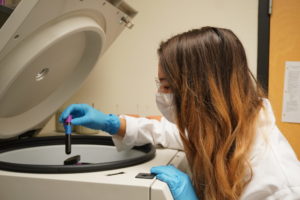
“During study visits for our study evaluating the ability of blueberries to improve cardiovascular health in postmenopausal women with elevated blood pressure and stage 1-hypertension, we give participants 22 grams per day of either a placebo powder or a freeze-dried blueberry powder to consume over a 12-week period,” said Grabos. “We perform several measurements related to their cardiovascular disease risk such as blood pressure, vascular function, anthropometrics, biochemical blood values, and endothelial cell biopsies. The primary objective of this study is to evaluate the potential of blueberries as a functional food to reduce the risk for cardiovascular disease in postmenopausal women and explore potential mechanisms.”
Grabos adds that she hopes the research will enrich the current body of work surrounding functional foods and provide evidence to explore potential applications in medicine as a cardioprotective measure.
After graduating, Grabos plans to attend medical school studying to become an M.D. specializing in gastrointestinal medicine. Smith hopes to continue his education in a coordinated masters and dietetic internship to become a registered dietitian. He plans to become an outpatient clinical dietitian.
The Department of Food Science and Human Nutrition is a part of CSU’s College of Health and Human Sciences.